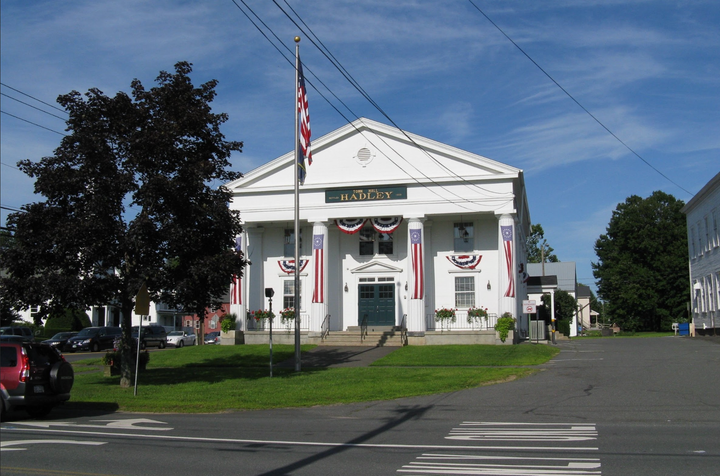Amherst students fire things up
Before receiving certification, Tornabene and Rodriguez had to undergo a strict training session before the beginning of the semester, which was followed by additional classes once the academic year had commenced. “The training consists of a very intense, 12-hour-a-day training week before school starts,” Tornabene said, adding that the training includes a run-through at a “burn house” at the Springfield Fire Academy. After this initial training, the volunteers must attend medical courses on Monday and Wednesday nights, along with day-long Saturday classes, and for the first semester, all new fire-fighters are designated “probationary.”
Rodriguez said she “never really considered volunteering until [she] met some of the guys on the force last year.” Since her classroom training last May and the intensive training session in the late summer, she has continued her supplemental training throughout the year.
Many of the volunteers also attend classes at the Massachusetts Fire Academy after their initial semester to “keep the skills up,” according to Tornabene. For him, “training was the hardest part [of his experience] because of the amount of hours it took.”
Balancing fire-fighting, classes and other activities has been a challenging endeavor for both Rodriguez and Tornabene. Rodriguez is a member of the women’s rugby team and a geology major, and Tornabene is both a member of the hockey team and a neuroscience major. “The labs and practice take up a lot of time,” said Tornabene. “Most of my time riding on the engine or ambulance has had to be on the night shift because of commitments during the day.”
Rodriguez has also found the work to be challenging. “So far I have been able to keep up with all classes and keep my grades up,” she said, despite the “mental and physical” challenge of working on the squad.
But living at the station has also created two big drawbacks for Tornabene-the alarms that go off through the night make it “impossible to sleep,” he said. He also noted that homework is difficult because the station is “a very loud and alive place.” Despite these problems, however, Tornabene has found his experience as a fire-fighter worthwhile. “[I wish I] had a little more time to devote to the department,” he said.
The volunteer program is geared more toward UMass than Amherst students for several reasons. Most notably, the station is closer to the UMass campus. Because Amherst’s campus is across town from the station, Tornabene said that living at the station is the only realistic way for students to play an active role in fire-fighting. “[A student is] guaranteed riding three to four nights a week and will most likely be in the station for box alarms,” he added. “A box alarm is a more serious call, while a still alarm would be something more like a fire alarm in Crossett.”
Rodriguez has also enjoyed living at the station and is happy with the treatment she has received in her work at the program. She maintains that, as a woman, she has found nothing but open arms in her interactions with the other volunteers on the team. “Everyone starts out the same and is given the same opportunities,” she said. “Gender and size don’t make much of a difference if you put the effort in, because that’s what the officers are looking for.”
The time Tornabene has spent volunteering has been a wonderful experience for him. He said that, because of an outburst of new recruitment in the past year, “I was very lucky to join the program when I did.” He owes much of his success to “tagging along with veteran fire-fighters,” who teach and insure the safety of the volunteers. He has personally been involved with two major fires, including the blaze at a Hampshire College Dorm earlier this year. “I was nervous when I encountered those fires,” he said, “but I never felt as if my life were in jeopardy.”
“The training we do is important,” said Tornabene, “but nothing replaces the lessons taught by people who have been around the business for 10, 20, and even 30 years.”
Rodriguez agrees that safety is a key aspect of the training and field work in which volunteers participate. “I have never really had any worries about my safety because our officers very strongly emphasize safety skills,” she said. As she put it, “[Fire-fighting] is a lot of fun and it is an amazing experience.”




Comments ()